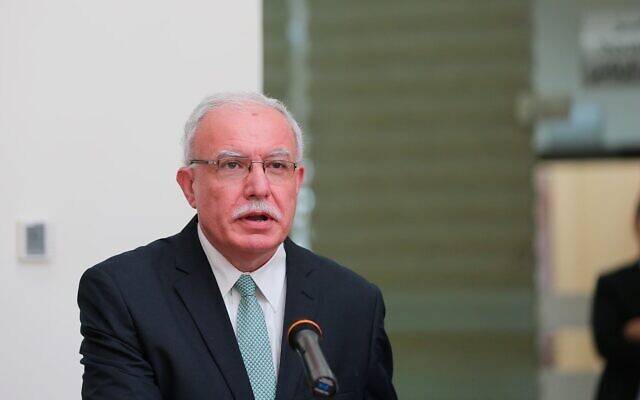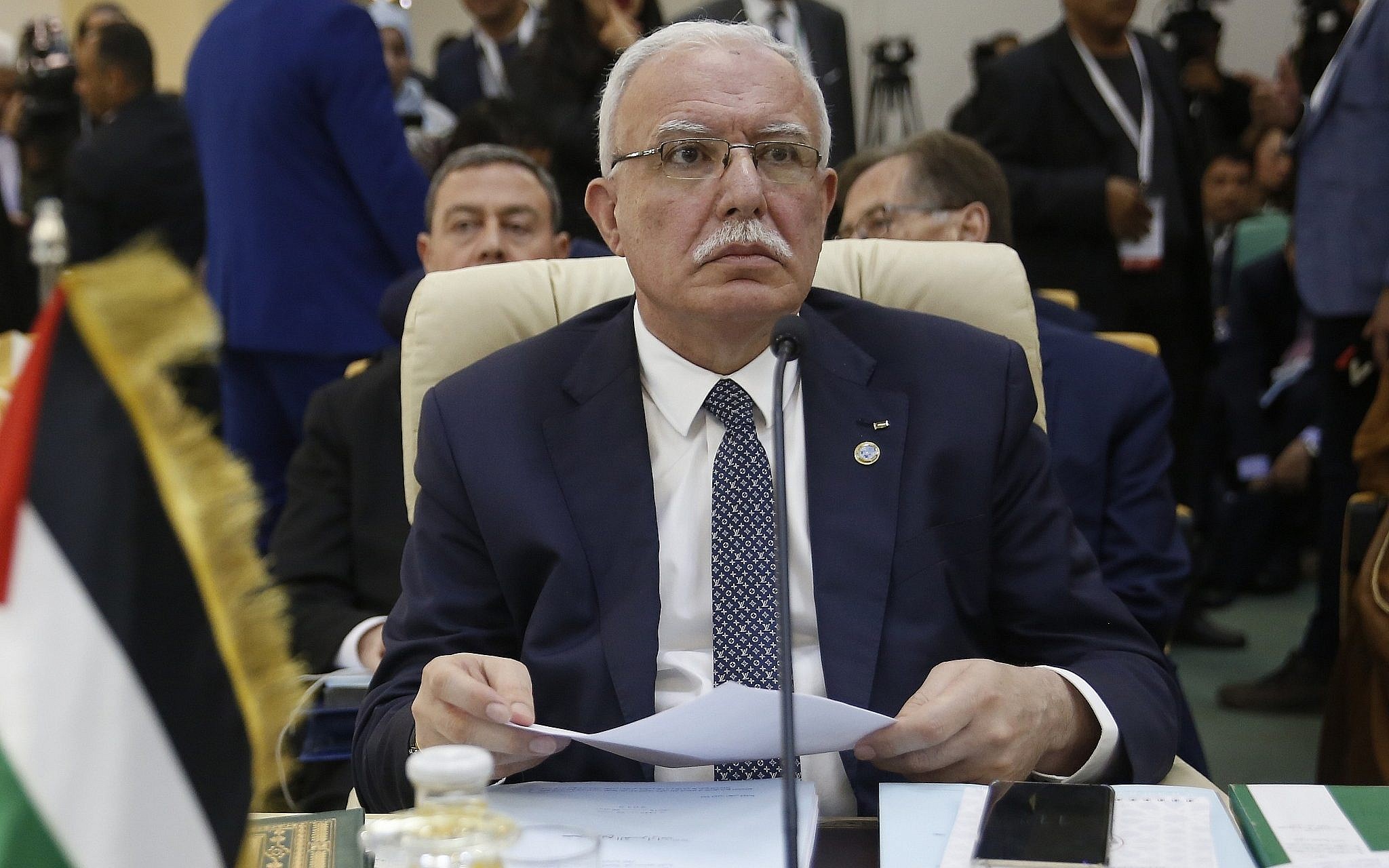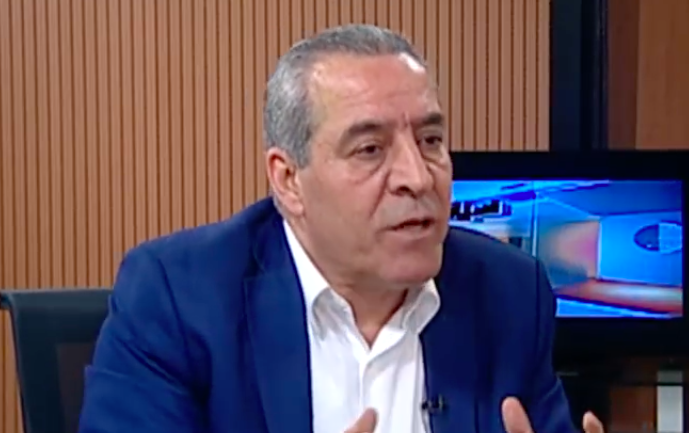Palestinian Authority Foreign Minister Riyad al-Maliki says Ramallah is in indirect contact with incoming Biden team, expresses cautious optimism about US president-elect

Palestinian Authority Foreign Minister Riyad al-Maliki told the Mediterranean Dialogues Forum on Thursday night that the PA had indirectly informed US President-elect Joe Biden’s incoming administration of its willingness to return to negotiations with Israel on the basis of international law resolutions.
“Right now, we are sending clear messages, not only to the Israelis and to the Biden administration, but also to the Europeans and many others, that the Palestinians are ready to reengage completely, with Israel, in renewing negotiations with no preconditions, as long as such renewal is based on already recognized terms of reference — meaning UN resolutions, the Arab Peace Initiative, and international law,” al-Maliki said.
It was not clear how the message had been conveyed, as al-Maliki later clarified the PA is only in indirect communication with the Biden transition team.
“We indirectly have had contacts with his team, and we are hopeful that we will be able to reengage again with the new administration in Washington on January 20,” al-Maliki said.

Fatah deputy chief Mahmoud al-Aloul, a close confidante of PA President Mahmoud Abbas, told Voice of Palestine Radio on Monday that the PA had reached “a number of understandings” with the incoming administration’s transition team. Al-Aloul declined to comment further in his interview, saying that he did not want to rush matters.
An Abbas spokesperson had said a week after Biden’s victory was called that the PA was willing to return to negotiations with Israel, as long as President Donald Trump’s controversial peace plan was dropped and both parties returned to negotiations “from the point where they last stopped.”
Palestinian Authority officials had been openly hoping for Trump to be defeated by Biden. The PA consistently charged that the Trump administration was lopsidedly biased toward Israel, and severed all dealings with it after it recognized Jerusalem as Israel’s capital in December 2017. The Trump administration, in turn, saw Ramallah as intransigent and unwilling to compromise.
“We cut all ties with the Trump administration. We refused to take their phone calls for the last three years, and we paid the price for that,” al-Maliki said.
Biden has promised to reverse several Trump administration policies that angered Ramallah, including restoring aid to Palestinian refugees and their descendants which the Trump administration cut in 2017. Biden is expected to oppose Israeli government efforts to annex parts of the West Bank, but not to reverse the Jerusalem recognition and embassy move.
Al-Maliki stressed in his remarks Thursday night that he was cautiously optimistic about a Biden presidency.

“What we have read and heard in statements from Vice President-elect Kamala Harris regarding a rapprochement with the Palestinian Authority… has really demonstrated to us that there are enough reasons for us to reengage with the administration the moment they take office,” al-Maliki said, referring to an interview Harris gave with an Arab-American news outlet in October.
In the aftermath of Biden’s victory, the PA also renewed its ties with Israel. Ramallah had severed all contacts with Jerusalem in the aftermath of Israel’s declared intention to annex parts of the West Bank in accordance with Trump’s controversial peace plan. That plan has since been shelved as Israel reached normalization deals with the United Arab Emirates, Bahrain and Sudan.
“Our stance was clear: As long as there was an intention to annex, the Palestinian leadership considered itself absolved of its agreements with Israel,” Hussein al-Sheikh, a close confidant of PA President Abbas said in an interview with official Palestinian TV.
Al-Sheikh contended that the decision to renew ties came in the aftermath of a written commitment by Israel to uphold its prior agreements with the Palestinians, which the PA has contended forecloses the possibility for annexation. Al-Maliki, however, explicitly connected the decision to return to coordination with Israel with the White House’s expected change in occupants.

“The fact also that we have renewed our financial and security coordination with Israel recently, we consider that an encouragement for the new administration to move forward in that direction,” al-Maliki said.
But given the coronavirus pandemic and domestic turmoil roiling the United States, al-Maliki said he recognized that the Palestinian cause was unlikely to be at the top of the incoming administration’s list of priorities.
“We know that the Biden administration is likely to be focused on internal rather than external matters,” al-Maliki said.
While Prime Minister Benjamin Netanyahu spoke with the US President-elect last week, Abbas has yet to hold a phone call with Biden. Al-Maliki said Ramallah has submitted a request for such a conversation.
“We have asked for a phone call between President Abbas and President-elect Biden. We have asked for a specific date and time for such a phone call to take place,” al-Maliki said.
As reported by The Times of Israel
